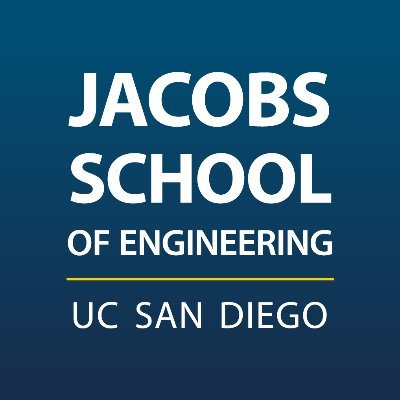News

March 5, 2025
A New Way to Predict Cancer's Spread? Scientists Look at 'Stickiness' of Tumor Cells
By assessing how "sticky" tumor cells are, UC San Diego researchers have found a potential way to predict whether a patient's early-stage breast cancer is likely to spread. The discovery could help doctors identify high-risk patients and tailor their treatments accordingly. Full Story

February 27, 2025
Bioengineer elected to the National Academy of Inventors
Lingyan Shi was elected as a senior member of the National Academy of Inventors. She is an expert in imaging and spectroscopy technologies, such as stimulated Raman scattering (SRS) nanoscopy. This imaging technique can visualize chemical signatures such as molecular bonds in cells, tissues or animals without the need for fluorescent markers typically used in biological microscopy. The technology can be a powerful tool for diagnosing and assessing the impact of therapies for neurodegenerative diseases, cancer and aging processes, as well as for drug discovery. Full Story

February 5, 2025
UC San Diego Professor Honored by Sony and Nature for Bioengineering Research
Bioengineering Professor Kiana Aran is one of three inaugural winners of the Sony Women in Technology Award with Nature. She is recognized for her pioneering work fusing biology with electronics to enhance precision medicine—including the development of CRISPR-Chip, a CRISPR-powered electronic chip designed to detect genetic mutations in real time. The award is a collaboration between the Sony Group Corporation and Nature. Full Story

January 23, 2025
Scaling up Neuromorphic Computing for More Efficient and Effective AI Everywhere and Anytime
Neuromorphic computing—a field that applies principles of neuroscience to computing systems to mimic the brain’s function and structure—needs to scale up if it is to effectively compete with current computing methods. In a review published Jan. 22 in the journal Nature, 23 researchers, including two from the University of California San Diego, present a detailed roadmap of what needs to happen to reach that goal. The article offers a new and practical perspective toward approaching the cognitive capacity of the human brain with comparable form factor and power consumption. Full Story

January 21, 2025
Why Our Biological Clock Ticks: Research Reconciles Major Theories of Aging
Researchers at UC San Diego have published results that shed new light on an old question: what causes aging at the molecular level? Their findings, published in Nature Aging, describe a never-before-seen link between the two most accepted explanations: random genetic mutations and predictable epigenetic modifications. Full Story

January 16, 2025
Jacobs School Faculty Receive Awards to Accelerate Innovation to Market
Stephanie Fraley, Nicole Steinmetz, Kiana Aran and Sheng Xu all received Accelerating Innovation to Market awards from the Office of Innovation and Commercialization. In addition, Jacobs School affiliates Erin Walsh and Nadir Weibel also received awards. Full Story

January 14, 2025
Genetic Tweak Optimizes Drug-making Cells by Blocking Buildup of Toxic Byproduct
Scientists led by UC San Diego have developed a new strategy to enhance pharmaceutical production in Chinese hamster ovary (CHO) cells, which are commonly used to manufacture protein-based drugs for treating cancer, autoimmune diseases and much more. By knocking out a gene circuit responsible for producing lactic acid—a metabolite that makes the cells’ environment toxic—researchers eliminate a primary hurdle in developing cells that can produce higher amounts of pharmaceuticals like Herceptin and Rituximab, without compromising their growth or energy production. Full Story

December 3, 2024
Nanoscale Bumps and Grooves Trigger Big Changes in Cell Behavior
The surfaces that cells come into contact with can influence how the cells grow, function, and communicate — shaping metabolism and even cellular health. Now, engineering researchers at the University of California San Diego have developed a platform for studying the ways that nanoscale growing surfaces can impact cellular behavior. Full Story

December 2, 2024
How Artificial Intelligence Could Automate Genomics Research
Researchers at University of California San Diego School of Medicine have demonstrated that large language models (LLMs), such as GPT-4, could help automate functional genomics research, which seeks to determine what genes do and how they interact. Full Story

November 1, 2024
UC San Diego Part of National Hub for Large-scale Neuromorphic Computing
Bioengineering professor Gert Cauwenberghs at the University of California San Diego is one of four researchers leading a new hub that will provide access to open and heterogeneous neuromorphic computing hardware systems. The Neuromorphic Commons Hub, also known as THOR, is based at the University of Texas San Antonio and funded by a $4 million grant from the National Science Foundation. It aims to deploy and manage a large-scale community research infrastructure. Full Story
